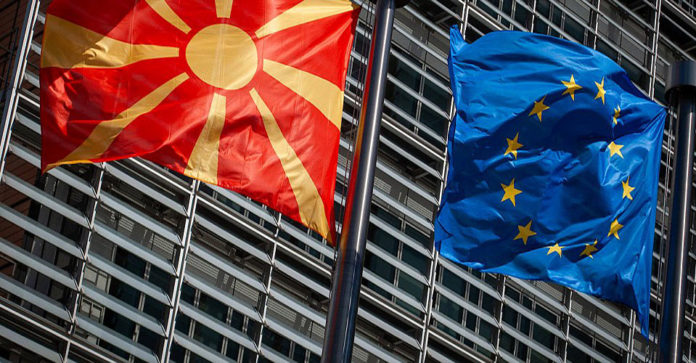The EU Council adopted Tuesday a recommendation on the entry of third-country nationals in the Union as of July 1, with Macedonia failing to meet the epidemiological criteria, MIA reports from Brussels.
Despite the European Commission recommendation to give all countries of the Western Balkans a green light to enter the EU as of July 1, member-states have agreed to allow a gradual lift of the travel restrictions only for Serbia and Montenegro.
The list also includes Algeria, Australia, Canada, Georgia, Japan, Morocco, New Zealand, Rwanda, North Korea, Thailand, Tunisia and Uruguay.
The list of third countries will be reviewed every two weeks.
Regarding China, the EU will open its borders subject to confirmation of reciprocity.
The criteria to determine the third countries for which the current travel restriction should be lifted cover in particular the epidemiological situation and containment measures, including physical distancing, as well as economic and social considerations, says the Council.
Regarding the epidemiological situation, third countries listed should meet the following criteria: number of new COVID-19 cases over the last 14 days and per 100,000 inhabitants close to or below the EU average; stable or decreasing trend of new cases over this period in comparison to the previous 14 days; overall response to COVID-19 taking into account available information, including on aspects such as testing, surveillance, contact tracing, containment, treatment and reporting, as well as the reliability of the information and, if needed, the total average score for International Health Regulations (IHR).
Information provided by EU delegations on these aspects should also be taken into account. Reciprocity should also be taken into account regularly and on a case-by-case basis.
For countries where travel restrictions continue to apply, including Macedonia, the following categories of people should be exempted from the restrictions: EU citizens and their family members; long-term EU residents and their family members; travellers with an essential function or need, as listed in the Recommendation.
The Council recommendation is not a legally binding instrument. The authorities of the member states remain responsible for implementing the content of the recommendation. They may, in full transparency, lift only progressively travel restrictions towards countries listed.
A Member State should not decide to lift the travel restrictions for non-listed third countries before this has been decided in a coordinated manner, says the Council.





Comments are closed for this post.